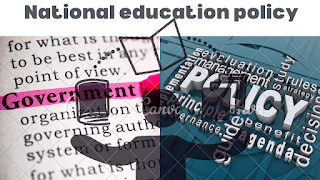"Women Empowerment"
Women empowerment is a crucial aspect of societal progress, fostering equality and enhancing the overall well- being of communities. Empowering women involves granting them the tools, resources, and opportunities necessary to participate actively in social, economic, and political spheres.
In the economic realm, empowering women means breaking down barriers that limit their access to education and employment. By providing equal opportunities for skill development and vocational training.
In the economic realm, empowering women means breaking down barriers that limit their access to education and employment. By providing equal opportunities for skill development and vocational training, women can contribute significantly to the workforce, thereby driving economic growth. Initiatives promoting women entrepreneurs and addressing gender pay gaps also play a pivotal role in empowering women economically.
Education is a cornerstone of empowerment. Ensuring equal access to education for girls and women opens doors to a myriad of opportunities. It not ↓ only equips them with the knowledge
Education is a cornerstone of empowerment. Ensuring equal access to education for girls and women opens doors to a myriad of opportunities. It not only equips them with the knowledge and skills needed for personal development but also enables them to participate meaningfully in decision- making processes within their dismantlin.
Political empowerment is another crucial dimension. Encouraging women's participation in politics and leadership roles fosters diverse perspectives and inclusive governance. Implementing policies that promote gender equality in political representation is essential for building
Political empowerment is another crucial dimension. Encouraging women's participation in politics and leadership roles fosters diverse perspectives and inclusive governance. Implementing policies that promote gender equality in political representation is essential for building societies where women's voices are heard and their interests are considered in policymakt
Additionally, addressing healthcare disparities is fundamental to women's empowerment. Access to quality healthcare, including reproductive health services, is vital for women's overall well-being. Empowering women in this context volves dismantling
societal tahons and ensuring that the
Additionally, addressing healthcare disparities is fundamental to women's empowerment. Access to quality healthcare, including reproductive health services, is vital for women's overall well-being. Empowering women in this context involves dismantling societal taboos and ensuring that they have control over their reproductive choices.
Breaking down societal stereotypes and challenging traditional gender roles is an ongoing process in women's empowerment. It involves fostering a cultural shift that recognizes and appreciates the diverse talents and capabilities of both men and women. Media, education, and public discourse
blou orucial roles in challenging andB reaking down societal stereotypes challenging traditional gender roles is an ongoing process in women's empowerment. It involves fostering a cultural shift that recognizes and appreciates the diverse talents and capabilities of both men and women. Media, education, and public discourse play crucial roles in challenging and changing outdated perceptions of gender roles.
In conclusion, women empowerment is multifaceted and requires a holistic approach encompassing economic, educational, political, healthcare, and cultural dimensions. By investing in women's empowerment, societies can unlock the full potential of half their population, leading to more equitable,
Media, education, and public discour play crucial roles in challenging and changing outdated perceptions of gender roles.
In conclusion, women empowerment is multifaceted and requires a holistic approach encompassing economic, educational, political, healthcare, and cultural dimensions. By investing in women's empowerment, societies can unlock the full potential of half their population, leading to more equitable, resilient, and prosperous communities. It is not just a matter of justice but a strategic imperative for sustainable development and progress.








Comments
Post a Comment